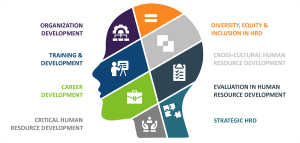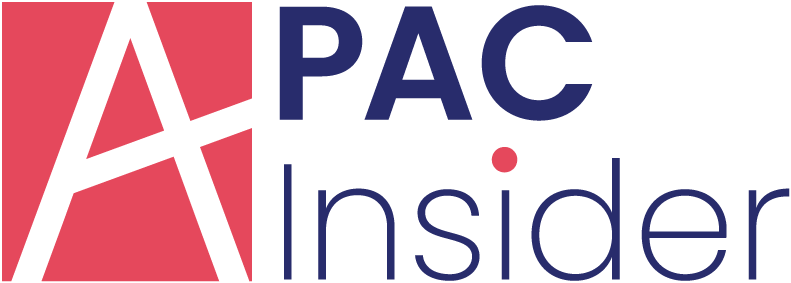
HR & payroll experts Barbara Matthews and Jonathan Goldsmith from global HR platform Remote are interviewed on the importance of localizing your HR strategy as a business expands internationally.
As 44% of business leaders report growth in the number of full-time employees abroad, HR and payroll are vehicles to ensure employees and teams experience personalization within a company no matter where they are in the world.
Remote call this approach ‘global-first’, a way to make global HR feel like local HR and avoid the complexities that come with regional expansion. Some know this as a ‘glocal’ strategy which derives from the Japanese term ‘Dochakuku’ meaning global localization.
In a discussion with the Chief People Officer Barbara Matthews and Jonathan Goldsmith, the VP of Payroll, Remote revealed the importance of making global HR feel like local HR and the vital role HR and payroll play in making this strategy a success.
What is a local or ‘glocal’ HR strategy?
Barbara says: “Global HR can often feel like a complex field. It involves managing employees, contractors, and freelancers across multiple countries and cultures. A global-first or ‘glocal’ strategy combines objectives at a global scale as well as a personal approach specific to certain regions. You need to ensure an organization evolves and adapts with flexibility at its core so it can quickly respond to changes in the market. Meanwhile, these processes must be filtered down to a local level, considering all legislation, regional compliance, economics, and culture.
“When working at a regional level, you need a deep understanding of the area. You need to navigate language barriers, cultural differences, and specific legal requirements while managing these teams. The key benefit of doing this is you can access a wider pool of talent and expand operations into new markets, but only if you get it right. Local input and knowledge should always feed into the global outlook and be consistent. The experience an employee has with your organization should be the same wherever they are based, but their needs may be different. Without local visibility and understanding it’s difficult for distributed teams to buy-in or feel cared for by the organization.”
Jonathan says: “Global payroll is not about finding talent but paying talent in the way that they need to be paid, and enabling your organization to react and have the flexibility to hire anywhere in the world. We like to think of global payroll as domestic x5 or domestic x20 – an employee experience should be the same across the board.
“Flexibility of pay is a really big thing when thinking about turning global HR into local HR. For example, some people want cross-currency payments – you should give this ability to everybody across the world to get paid in the currency they would like to be paid in. Others might want to use their pay in a different way which can be turned into benefits. Why don’t we match donations towards something like a holiday or to help them save money? Doing that is good for the company, but think about the positive effect that has on the employee. While different regions can be specific, everybody in the world is trying to take care of their family, feed their family, and do fun things.”
What are the biggest challenges faced by HR & payroll as a business goes global?
Barbara says: “The biggest challenge is ensuring you provide every employee with a consistent experience of your organization, across recruitment and performance management as well as compensation and benefits – that’s how you really make global HR feel like local HR. It’s about making everyone in your organization feel a part of it. Start these practices ahead of global expansion, so the systems are in place to grow alongside your organization rather than figure out regional variations and complexities as you expand.
“Consistency is best achieved through regional understanding. One example is the benefits offered by your organization, with the value of these benefits considering and matching factors such as cost of living. The effect of the rising cost of living is something that impacts everyone around the world as inflation becomes a true global issue. To support the team, an organization may offer core health benefits such as private health insurance, and mental health care, and adopt a remote work policy – each must be customizable according to local economic conditions and cultural standards. Demonstrating personalized regional understanding through core benefit packages directly impacts a positive work culture at every level of the organization.”
Jonathan says: “From a payroll perspective, we’ve seen that many businesses are growing but don’t necessarily have a designated payroll person – this can create complications as a business expands and enters regions they haven’t operated in before and come up against new rules and regulations without an advisor that knows the region well. Our focus at Remote is to create an easily accessible payroll for ‘non-payroll people’. It’s about taking all the unstructured data and structuring it in specific formats that everyone in the company can understand. This is such an easy simplification and form of personalization of a process that grows with the business and avoids complications.
“Consistency is a big issue, particularly in a distributed workforce. Talent is not specific to a location. As your business grows globally, you need expertise globally because markets are local and how you sell is different locally. The misconception is really about giving a consistent experience to the employee. Payslips, for instance, can be the same experience across your company but the information in them needs to be specific and familiar to the individual. This is a vehicle to show distributed employees that the business cares about their needs, supporting retention and morale at the same time.”
What advice can you give to managers trying to implement a ‘glocal’ HR strategy?
- What works in one region, may not work in another: HR and payroll strategies need to be consistent while remaining flexible and customizable to the considerations of regional teams.
- Demonstrate consistency across the organization: The work of HR and payroll is to give employees the same positive experience of your organization and to support talent retention and motivation.
- Embrace being globally-minded: The experience of your organization should be universal around the world, but ensure you demonstrate an understanding of regional specifics. Different regions have unique cultural influences and ways of working – this is an opportunity to celebrate your organization’s globally-minded culture by enhancing connections and creating channels for experiences to be shared.
- Not every company has an internal HR or payroll team: If you need the expertise of a provider, make sure you work with a company where you have the flexibility to choose what technology you want to use and what you feel comfortable with.
- Be strategic with the advancement of technology: When technology changes, it opens up new roles and businesses have to adapt to that but not at the expense of people. There will always be technology in the middle, but there are people on both sides. Find where you are as a business to support new initiatives and new roles.
























